Publications
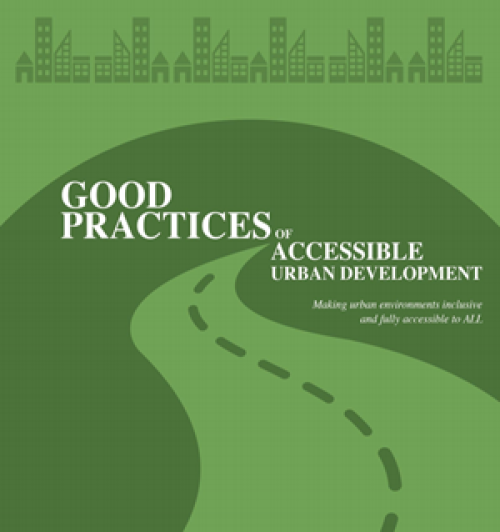
By 2050, it is expected that about 6.25 billion people, 15 per cent of whom are persons with disabilities, will be living in urban centres. Urbanization has the potential to be an engineer for achieving sustainable and inclusive development for all. This new publication on “Good Practices of Accessible Urban Development” illustrates and encourages more initiatives and concrete actions from both developing and developed countries in advancing urban development to be accessible and inclusive to all, including persons with disabilities and other special needs.
Highlighting key experiences and lessons learned from 24 case studies, the publication contributes to the ongoing discourse…
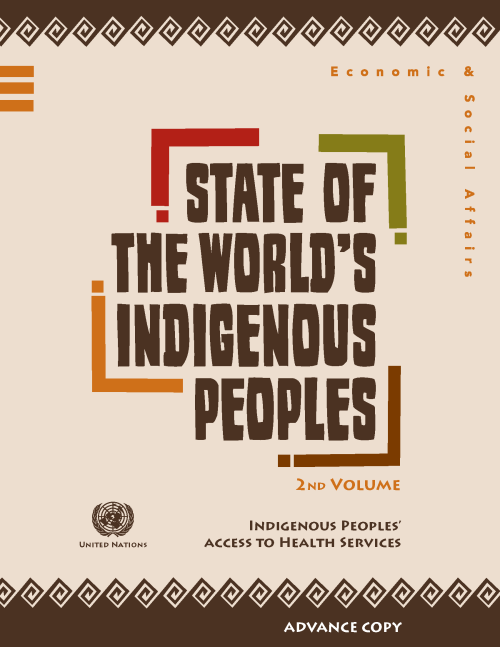
This publication sets out to examine the major challenges for indigenous peoples to obtain adequate access to and utilization of quality health care services. It provides an important background to many of the health issues that indigenous peoples are currently facing. Improving indigenous peoples’ health remains a critical challenge for indigenous peoples, States and the United Nations.
Today, 54 per cent of the world’s population lives in urban areas, a proportion that is expected to increase to 66 per cent by 2050. Projections show that urbanization combined with the overall growth of the world’s population could add another 2.5 billion people to urban populations by 2050, with close to 90 percent of the increase concentrated in Asia and Africa, according to a new United Nations report launched today.
The 2014 revision of the World Urbanization Prospects by UN DESA’s Population Division notes that the largest urban growth will take place in India, China and Nigeria. These three countries will account for 37 per cent of the projected growth of the world’s urban…
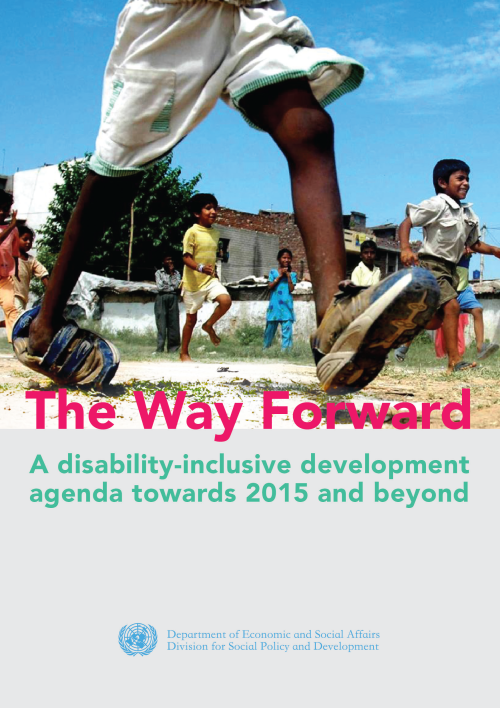
On 23 September 2013, the General Assembly convened the first ever High Level Meeting on “the Realization of the MDGs and other internationally agreed development goals for persons with disabilities.” During the opening segment, Member States unanimously adopted the Outcome Document, which is reproduced in this brochure.
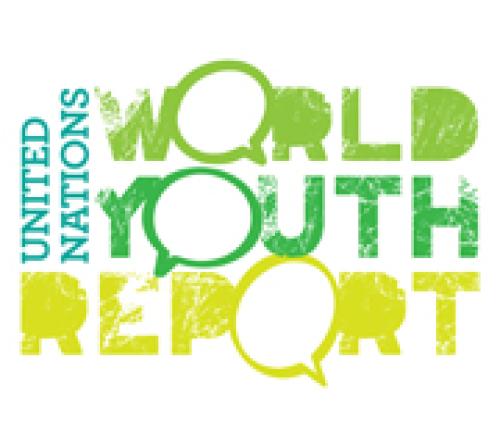
The report is based on the experiences of young people affected by migration and relates the stories of individuals as they move to new lands. About half of the young international migrants are women and girls, and 60 per cent of young international migrants live in developing countries. The report primarily focuses on the experiences of international migrants, but notes that many young people are internal migrants who move within their home countries.
The report outlines the global situation of young migrants by highlighting some of the concerns, challenges and successes experienced by young migrants as told in their voices taken from a series of online consultations and surveys…
The experience from the Millennium Development Goals has shown that well-defined, objectively measurable indicators can help to maintain focus on internationally agreed development goals and targets, while keeping the world informed of achievements, problem areas and emerging issues.
Looking ahead to the post-2015 development agenda, it will be important to develop a robust monitoring system that draws on traditional data collection methods and innovations in statistics and data collection to develop a monitoring framework that can measure progress on the various thematic areas.
While it is still too early to define a set of indicators and targets for the development…
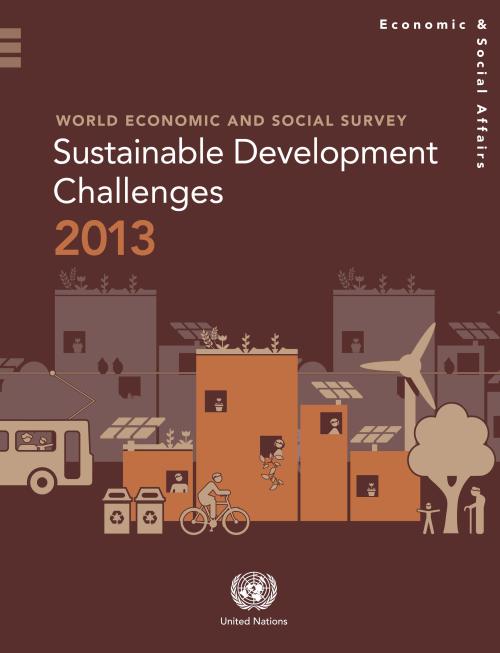
New strategies are needed to address the impacts of rapid urbanization around the world, including increasing demands for energy, water, sanitation, public services, education and health, according to the World Economic and Social Survey 2013.
The 2013 Survey examines the many challenges that must be addressed to achieve sustainable development. The United Nations Conference on Sustainable Development—Rio+20--set out a framework for action and follow-up across a wide range of issues and the Survey zooms in on three critical challenges – food security, energy transformation and sustainable cities.
According to the Survey produced by the UN Department for Economic and Social…
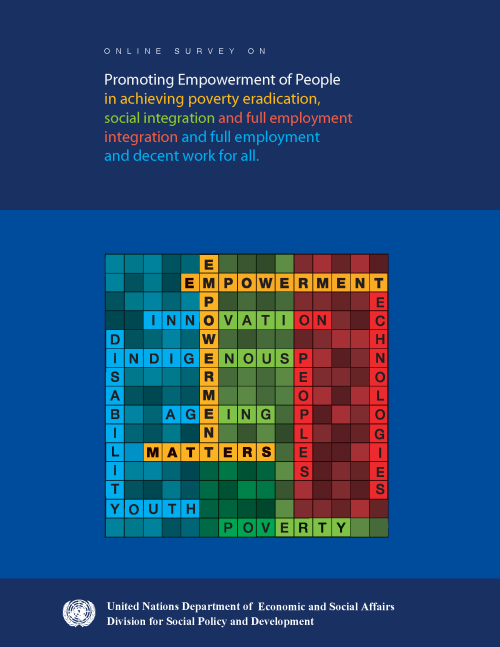
UNDESA-DSPD, from 8 August to 5 September 2012, conducted a global online survey to gather inputs for consideration by the 51st session of the Commission for Social Development (CSocD), which took place from 6 to 15 February 2013.
The survey enabled the public worldwide to respond to a set of questions that were related to the priority theme of CSocD on “Promoting empowerment of people in achieving poverty eradication, social integration and full employment and decent work for all”.
The responses collected and selected from the first question “Empowerment: What does it mean to you?” was published in a separate booklet.
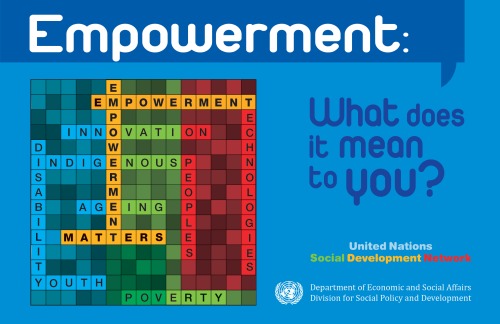
The “Definitions of Empowerment” represents a collaborative effort, made possible by the answers received from people all over the world on the Empowerment theme. Their invaluable contributions were essential for the preparation of the Empowerment Publication.
In order to collect people’s ideas and experiences, the Division for Social Policy and Development (DSPD) of UNDESA launched an on-line survey on “Promoting Empowerment of People”.
We were glad to receive tens and tens of responses from young individuals, persons with disabilities, older persons, and people working for various institutions and organizations committed to social development issues. Their keen interest…
Africa and Asia together will account for 86 per cent of all growth in the world’s urban population over the next four decades, adding that this unprecedented increase will pose new challenges in terms of jobs, housing and infrastructure. Africa’s urban population will increase from 414 million to over 1.2 billion by 2050 while that of Asia will soar from 1.9 billion to 3.3 billion, according to the 2011 Revision of the World Urbanization Prospects, produced by the UN Population Division of the Department of Economic and Social Affairs (DESA).
The largest increases in urban population are expected in the following countries: India, China, Nigeria, the United States and Indonesia…
The perceptions of the role of women and men in families have changed over the past few decades. Men are no longer perceived as the economic providers to families. The role of men in the family has undergone many “diverse demographic, socio-economic and cultural transformations” impacting the formation, stability and overall well-being of families. In light of this development, DESA’s Division for Social Policy and Development (DSPD) launched a new publication on “Men in Families and Family Policy in a Changing World” on 17 February focusing on the shifting roles and views of men in families.
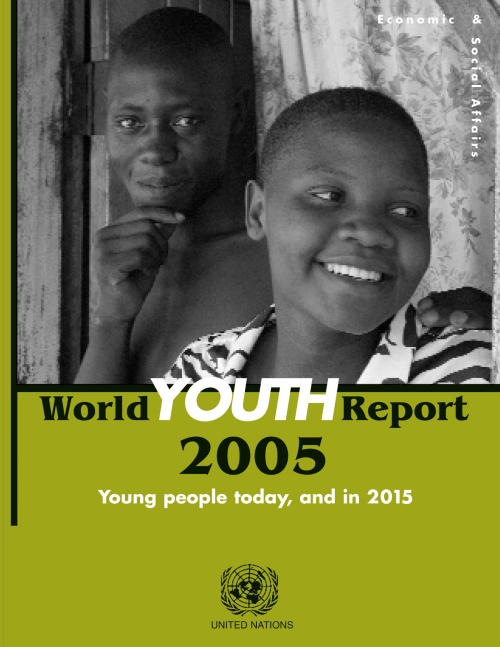
The year 2005 marks ten years since the General Assembly adopted the World Programme of Action for Youth in 1995. This report, an official report to the General Assembly, called for a renewed committment to the goals of the World Programme of Action, since over 200 million youth were living in poverty, 130 million youth were illiterate, 88 million were unemployed and 10 million young people were living with HIV/AIDS.
In the World Youth Report 2005, it is argued that too often, youth policy is driven by negative stereotypes of young people, including delinquency, drug abuse and violence. What seems to be forgotten is that young people are a positive force for development, peace,…
 Welcome to the United Nations
Welcome to the United Nations